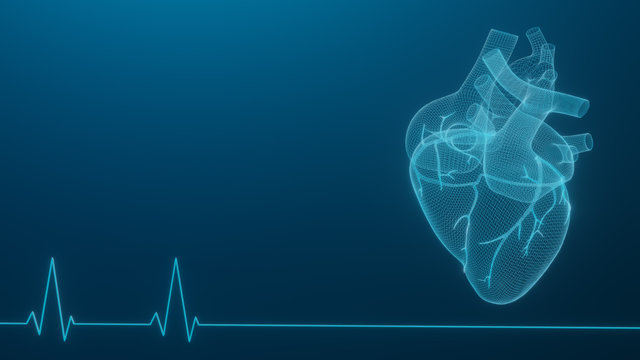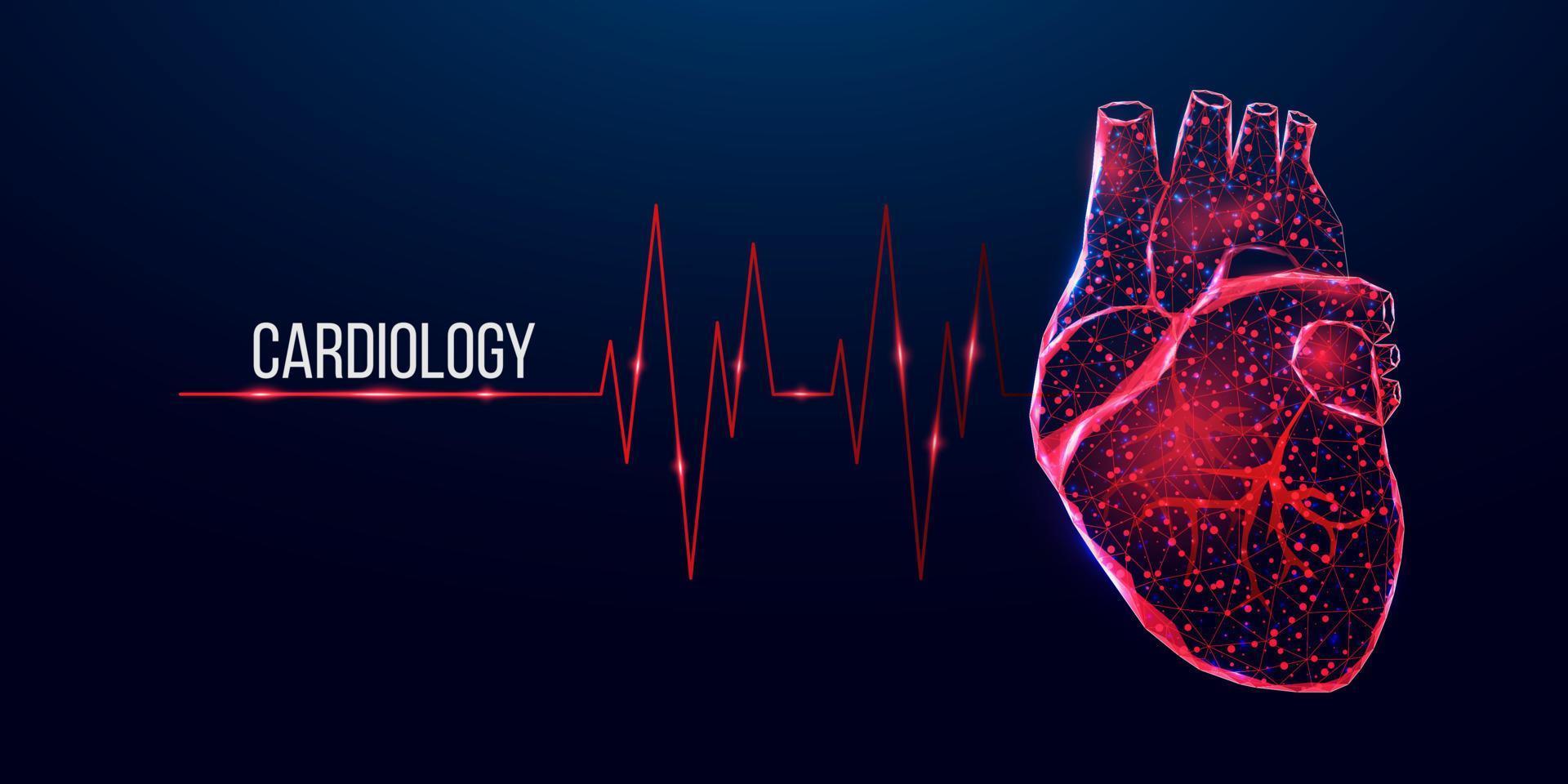Recognizing the Significance of Cardiology in Modern Medical Care Solutions
Cardiology plays a critical function in modern healthcare, specifically as cardiovascular disease continues to be the leading reason of death worldwide. Advancements in diagnostics and therapy have actually changed person care, allowing earlier interventions and improved outcomes. The shift towards precautionary cardiology equips people to manage their health proactively. As technology remains to progress, the assimilation of cutting-edge remedies might further redefine cardiology's effect on public wellness, motivating a more detailed evaluation of arising fads and their ramifications.
The Frequency of Heart Problem and Its Effect On Public Health
Heart condition stays the leading cause of death around the world, its effect prolongs far beyond individual clients to impact public health and wellness systems and economies. The high frequency of heart illness positions a considerable strain on healthcare resources, demanding raised funding for treatment, recovery, and avoidance programs. Public wellness initiatives need to resolve threat factors such as obesity, cigarette smoking, and less active lifestyles, which add considerably to the rising occurrence of heart conditions.Moreover, the financial burden linked with heart condition is tremendous, encompassing not just direct clinical expenses however also indirect expenses connected to lost efficiency and early death. Neighborhoods face difficulties in taking care of these expenses, commonly resulting in disparities in healthcare gain access to and results. As the population ages and lifestyle-related risks proceed to escalate, the necessity for efficient cardiology interventions ends up being paramount. Subsequently, dealing with heart condition is not just a matter of specific health however additionally a vital public wellness top priority.
Developments in Heart Diagnostics and Imaging Techniques
Recent innovations in heart diagnostics and imaging techniques have actually changed the area of cardiology, enhancing the ability to keep track of and spot cardiovascular disease. Methods such as cardiac MRI, CT angiography, and echocardiography have ended up being significantly advanced, giving detailed pictures of heart structures and features. These methods enable the early identification of problems like coronary artery disease, cardiac arrest, and valvular disorders.Moreover, innovations in non-invasive diagnostics, such as wearable modern technology and remote tracking devices, have actually equipped people and doctor. These devices promote real-time monitoring of heart rhythms and various other necessary indicators, bring about prompt interventions. Furthermore, artificial knowledge is being integrated right into imaging analysis, improving accuracy and efficiency in diagnosis.
Technologies in Treatment Choices for Heart Conditions
Current developments in cardiology have actually caused significant innovations in therapy choices for heart problems. These consist of advanced surgical methods that improve procedural end results and emerging drugs that use brand-new methods for therapy. As the field evolves, these technologies play a vital duty in boosting individual care and end results.
Advanced Surgical Techniques
Advancements in medical strategies have changed the landscape of cardiology, using brand-new wish for clients with heart conditions. Minimally invasive procedures, such as catheter-based treatments, have greatly decreased healing times and medical facility remains. Methods like robotic-assisted surgical procedure boost accuracy, permitting doctors to navigate complex physiological structures with better precision. Additionally, advancements in imaging modern technology help with real-time visualization during procedures, improving outcomes. Transcatheter aortic valve substitute (TAVR) exemplifies a development in treating aortic constriction, making it possible for valve replacement without open-heart surgical procedure. Additionally, hybrid techniques that incorporate medical and catheter-based techniques provide customized solutions for different cardiac problems. These innovative surgical methods not only enhance individual safety and security yet likewise increase treatment choices, emphasizing the essential role of advancement in modern cardiology techniques.
Arising Treatments and drugs
As the landscape of cardiology continues to develop, emerging medicines and therapies play a crucial role in improving therapy options for heart disease. Technologies such as novel anticoagulants and advanced lipid-lowering representatives have actually transformed the administration of heart diseases, considerably decreasing patient morbidity and death. In addition, the growth of genetics therapies and regenerative medicine provides promising avenues for treating problems previously considered irreversible. Clinical tests are continually disclosing the efficacy of these therapies, pushing the borders of traditional therapies. The assimilation of electronic health innovations promotes customized medication, enabling for tailored treatment strategies based on genetic and way of life aspects. Collectively, these advancements underscore the vibrant nature of cardiology, boosting client end results and redefining criteria of care in contemporary health care.
The Duty of Preventive Cardiology in Patient Care
Preventive cardiology plays an important role in patient care by concentrating on the recognition of danger aspects that add to heart problem. Through lifestyle adjustment strategies and very early discovery techniques, doctor can successfully lower the incidence of cardio occasions - Cardiologist near me. This proactive method not only boosts patient results yet also advertises long-term health
Danger Variable Recognition
While cardiovascular conditions continue to be a leading cause of morbidity and mortality worldwide, efficient risk element recognition works as a cornerstone of preventative cardiology. Determining threat variables such as high blood pressure, household, hyperlipidemia, and diabetes mellitus background is important for very early treatment. Healthcare specialists use numerous evaluating methods to review these elements, permitting tailored preventive procedures. Furthermore, recognizing a patient's lifestyle selections, such as cigarette smoking and physical lack of exercise, better notifies risk evaluations. This detailed examination allows clinicians to develop customized care strategies targeted at mitigating threats. By prioritizing risk aspect identification, medical care systems can enhance patient results and lower the overall concern of cardio conditions, inevitably adding to enhanced public health techniques and source allowance.
Way Of Living Alteration Strategies
A multitude of research studies highlights the critical role of lifestyle modification methods in reducing cardio condition risk. These strategies include dietary adjustments, enhanced physical task, cigarette smoking cessation, and weight administration. By embracing a heart-healthy diet plan rich in fruits, veggies, entire grains, and lean proteins, people can reduce cholesterol degrees and blood stress. Regular exercise strengthens the heart and improves general cardio health and wellness. Additionally, stopping smoking cigarettes considerably decreases the risk of heart problem and improves healing prices for those with status quo. Weight management further adds to cardio health by reducing various other threat variables such as diabetes and high blood pressure. Executing these lifestyle changes not just advertises private wellness however likewise acts as a keystone of preventative cardiology in client treatment.
Very Early Discovery Methods
Way of living modifications substantially add to reducing cardio condition dangers, however they are most efficient when matched with early discovery techniques. Preventative cardiology emphasizes click reference the value of recognizing potential heart concerns prior to they intensify into severe problems. Strategies such as blood pressure surveillance, cholesterol testing, and progressed imaging innovations like echocardiograms play important roles in assessing cardio wellness. Biomarkers and genetic screening likewise improve the precision of very early detection, enabling tailored preventative strategies. Regular heart danger examinations empower healthcare carriers to intervene proactively, potentially avoiding cardiac arrest and strokes (Cardiology care). By incorporating these very early discovery approaches right into regular care, people can gain from prompt way of life treatments and targeted treatments, ultimately enhancing and enhancing results high quality of life
Integrating Innovation Into Cardiology Practices
As innovations in modern technology proceed to improve different fields, the combination of innovative devices and systems into cardiology methods has become necessary for improving client care and end results. Telemedicine platforms allow cardiologists to monitor clients remotely, enhancing accessibility to care while decreasing the worry on medical care facilities. Wearable tools, such as smartwatches, allow continuous heart price tracking, alerting both individuals and medical professionals to prospective concerns in real-time. Additionally, artificial knowledge (AI) is being utilized to examine large amounts of cardiac information, aiding in very early diagnosis and customized therapy plans. Advanced imaging techniques, including 3D echocardiography, enhance visualization of heart frameworks, resulting in a lot more precise interventions. Electronic health documents (EHRs) simplify person details monitoring, making certain that cardiologists have instant accessibility to critical information. With each other, these technical innovations are changing cardiology, promoting aggressive management and enhanced health and wellness outcomes for patients with cardio conditions.
The Relevance of Individual Education and Interaction
Client education and learning and engagement play a pivotal role in the management of cardio health and wellness. By equipping clients with knowledge concerning their conditions, treatment alternatives, and lifestyle changes, doctor equip people to take an active duty in their treatment. This proactive technique can result in enhanced adherence to recommended medicines, dietary modifications, and exercise routines, inevitably lowering the threat of complications.Engagement also cultivates a solid patient-provider connection, motivating open communication and trust. When individuals really feel informed and included, they are a lot more most likely to voice issues and ask questions, which can bring about much better scientific outcomes. In addition, educational resources, such as workshops or digital systems, can boost understanding and advertise self-management approaches. In general, prioritizing client education and engagement is crucial for enhancing cardio health and wellness, enhancing lifestyle, and reducing health care costs linked with heart diseases.
Future Patterns in Cardiology and Their Possible Impact

Regularly Asked Concerns
What Lifestyle Modifications Can Decrease Heart Condition Danger?
The present concern addresses way of living modifications that can considerably decrease heart problem risk. Cardiology care. Taking on a well balanced diet plan, engaging in routine exercise, keeping a healthy and balanced weight, managing anxiety, and staying clear of tobacco can especially enhance cardio health and wellness
How Can I Acknowledge Early Indicators of Heart Troubles?
Acknowledging very early indications of heart problems entails surveillance symptoms such as breast pain, lack of breath, tiredness, and irregular heart beat. Prompt awareness of these indications can motivate essential clinical examination and intervention for better results.
What Are the Differences Between Cardiologists and Cardiac Surgeons?
The distinctions between cardiologists and heart cosmetic surgeons exist in their roles; cardiologists largely manage and diagnose heart problems through non-invasive approaches, while cardiac cosmetic surgeons perform operations to deal with structural heart issues. Each plays a crucial, distinct function.

Just how Often Should I Get My Heart Health Checked?
The frequency of heart wellness checks varies based on specific risk factors. Generally, grownups need to go through analyses each to 2 years, while those with status quo might call for even more regular analyses as recommended by medical care experts.
What Function Does Genetics Play in Cardiovascular Disease Threat?
Genes greatly affects heart illness threat, with familial patterns indicating inherited conditions. Certain genetics can incline people to hypertension, cholesterol issues, and various other cardiovascular issues, highlighting the importance of genetic screening in evaluating heart health. Heart disease remains the leading reason of death worldwide, its influence prolongs much beyond private people to affect public health and wellness systems and economic situations. Public health and wellness campaigns should address threat factors such as weight problems, cigarette smoking, and inactive way of lives, which contribute greatly to the climbing incidence of heart conditions.Moreover, the economic burden connected with heart condition is my site immense, encompassing not just direct medical costs however additionally indirect expenditures associated to shed productivity and premature mortality. Preventive cardiology plays a crucial duty in individual care by concentrating on the identification of risk variables that contribute to heart condition. Man-made intelligence (AI) and machine knowing are boosting diagnostics and person monitoring, allowing early discovery of heart illness. The distinctions between cardiologists and cardiac specialists lie in their duties; cardiologists mainly manage and detect heart problems with non-invasive methods, while heart doctors perform medical procedures to remedy architectural heart problems.